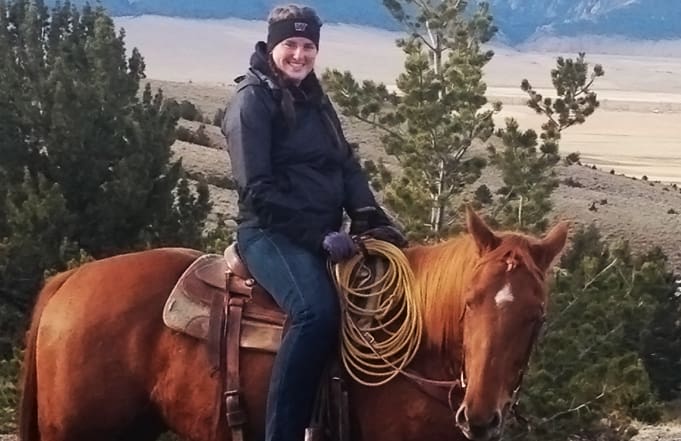March 15, 2018

A Colorado native, Nicole Busk always wanted to work with horses.
“I wanted to bring my horses with me and train them in a program that I believe is one of the best in the country,” Busk said.
After graduating in 2015, Nicole continues to work with her horses she brought to Montana Western and back again to Colorado. While she isn’t immersed in her job as a veterinary technician in Fruita, Colorado, she often helps neighbors with ranch work and moving cattle.
“The instructors in the program were great. Eric Hoffmann helped me to learn how to problem solve on my own while I was facing a variety of challenges, which prepared me for my real-world job. Lane Carlson provided me with many skills in treating horses, that I find myself using almost every day,” she said.
Busk feels that one of the most important things she learned is how to read an animal’s body language during the training process in the Natural Horsemanship Program. This helps the human side of the equation to understand what the animal is going through, and how best to approach training methods or treating it at the veterinary hospital.
“You can help the horse, or any animal, to be more successful in the treatment or healing process by observing its body language and behavior,” she said.
In addition to completing her Natural Horsemanship major with an option in management, Nicole was also able to explore one of her other interests: creative writing.
“Experience One and the block scheduling program allowed me to complete a minor in creative writing while I was also working with my horses in the Natural Horsemanship program. Because of Montana Western’s innovative scheduling system, I was able to pursue both of my passions.”
Finally, Nicole credits her determination to succeed in part to the program.
“The classes allowed me to learn how to deal with adversity, and overcome challenging situations in working with horses. Each horse in different, and requires its own unique variations in training,” she said.